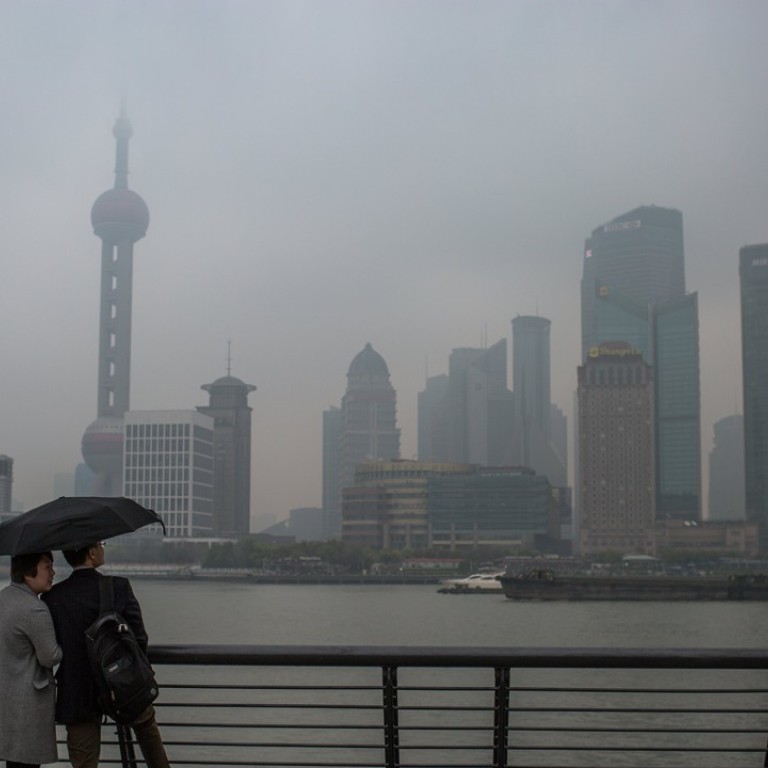
German envoy demands answers from China over internet crackdown
Beijing plan to further block use of VPNs will hurt European investment, German ambassador Michael Clauss warns
Germany’s top envoy to China called on Beijing to guarantee access to a free flow of information and warned that the government’s moves to tighten its control over the internet would dampen European companies’ interest in investing in China.
Ambassador Michael Clauss made the call amid growing concern among China’s online users and business community over Beijing’s cyberspace clampdown, from its recent launch of the cybersecurity law to a plan to further block the use of virtual private network (VPN) services.
Earlier this month, the Ministry of Industry and Information Technology released a statement dismissing recent media reports on its ordering a major telecommunications provider to block all VPN access by February 1.
A ministry spokesman on Tuesday defended the crackdown, saying it would only target unauthorised services and that licensed VPN providers were still available.
But Clauss said the Chinese authorities have stopped short of answering the question about whether it would further curb access to information.
“The statement by [the Ministry of Industry and Information Technology] leaves the most crucial question unanswered,” he said in a recent interview with the South China Morning Post. “Will China continue its course to restrict access to international information and unimpeded communication across borders further and further? This is a political question that needs to be answered.”

Clauss said many observers are concerned that China is creating the legal and technical framework for some kind of Chinese intranet, despite the official rhetoric about opening up further and supporting globalisation.
“If these VPN plans were implemented, this would undoubtedly damage China’s attractiveness for foreign companies, students, scientists and tourists,” he said.
Beijing’s tightening control over VPNs, however, has triggered a flood of worries and criticism from online users, foreign companies and academics and researchers who see China’s censorship moves as a barrier to trade and impeding its global competitiveness.

Clauss, whose home country is China’s fifth largest trading partner with 2016 bilateral trade volume of $162.6 billion, also noted wider concerns over the new cybersecurity law that took effect in June.
The key concern, he said, is the uncertainty created by the unspecified scope of the law, which lacks a sufficient level of security and legal clarity.
While Beijing has touted the new law as a milestone in the endeavour to safeguard national security and protect data privacy, Clauss said the new regulations “seemingly lack the right balance between security and openness”.

“That means this might well be a hindrance to the continued innovation that China needs in order to be economically and scientifically successful,” he said.
Under the new law, companies are required to store information on Chinese citizens or relating to national security on domestic servers in China. Companies may also be required to pass a security review before moving data out of China.
But the government has been unclear on what kind of data would be considered sensitive and affecting national security, leading to worries that such measures would allow Beijing to steal trade secrets or intellectual property from foreign companies.
Apple Inc recently became one of the first major tech companies to take measures to comply with the law. The maker of the iPhone and the iPad plans to establish a data centre in Guizhou province for storing all cloud data for its China customers with a government-owned company.
“It is not clear whether key information such as encryption schemes and decryption codes will have to be handed over to the government. Many foreign companies are concerned that this kind of access could be used to help their Chinese competitors,” he said.

Clauss also said he is concerned that the new law would give domestic companies an unfair edge.
“European companies are increasingly worried that the law will – intentionally or unintentionally – weaken their position in the Chinese market,” he said. “For example, Chinese customers may be tempted to choose Chinese data services in order to avoid the legal uncertainties of dealing with foreigners.”
The new law would create a burden for small- and medium-sized companies by creating additional information technology infrastructure necessary for compliance, Clauss said.
“Sooner or later these worries will compel European companies to rethink their investment strategies in China,” he warned.

